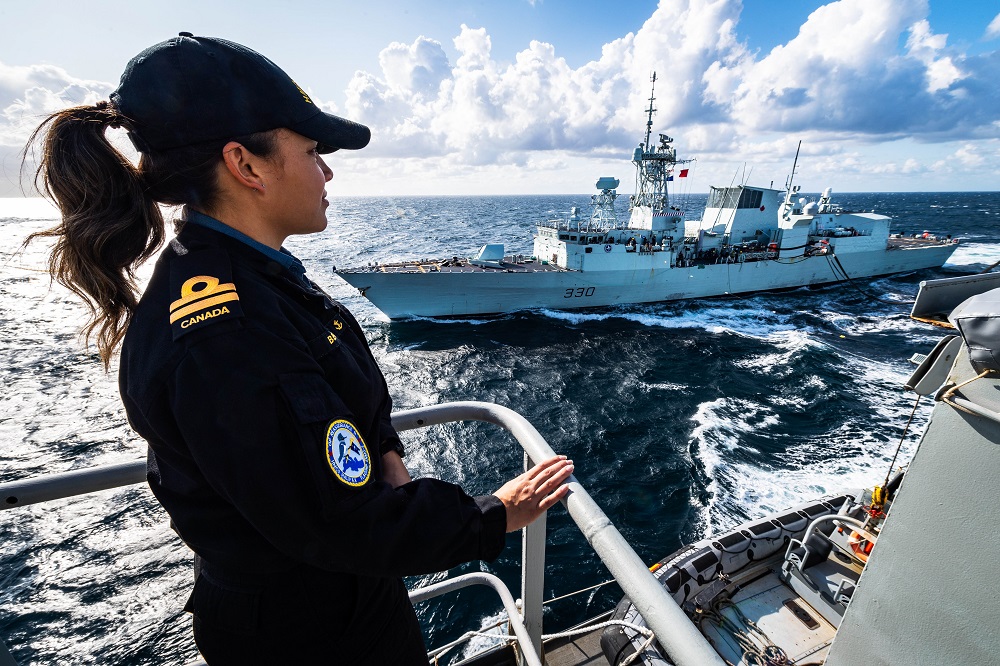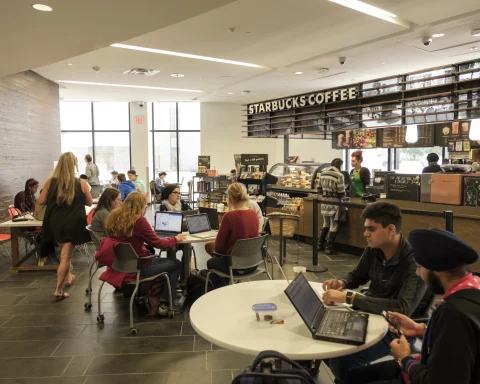Canada’s military is not yet ready to allow permanent residents to join its ranks, even as it struggles to boost recruitment and fix the growing diversity gap in the nation’s armed forces.
In response to a request from New Canadian Media, ahead of the inaugural Navy Fleet Weekend in Vancouver, numbers provided by the Canadian Armed Forces (CAD) show that three-quarters of its ranks are white men.
Women make up 16.3 per cent of the Canadian military demographic; Indigenous peoples come in at 2.7 per cent while there is less than 12 per cent of visible minorities in the Canadian military make-up.
Canada needs about 100,000 troops to be at full strength, but it is short about 12,000 regular force troops and reservists currently.
Scrapping the citizenship requirement
A little-known immigration pathway called the Foreign Skilled Military Applicant (FSMA) has only seen 15 successful candidates over the last five years.
“Over the last year alone, the Canadian Forces Recruiting Group (CFRG) interacted with approximately 100 individuals who were interested in joining the military through the FSMA,” military spokesperson Major Brian Kominar told NCM.
“Discussions involving the Department of National Defence, the Canadian Armed Forces, and Immigration, Refugees and Citizenship Canada (IRCC) on lifting the citizenship requirement are continuing, though there are no changes to announce at this time,” he said.
The CBC reported in 2018, in line with the government of Canada’s objective of raising the number of forces personnel, there are discussions to review the possibility of foreign nationals’ recruitment beyond skills applicants.
Lifting the forces’ citizenship requirement would be a sharp departure from Canada’s traditional recruitment practices and could open the doors to applications from thousands of permanent residents, the CBC reported.
Other countries — the U.S. among them — allow non-citizens to serve, with certain restrictions on the positions and ranks they can hold.
In 2016, the RCMP scrapped its citizenship requirement, allowing permanent residents who have lived in Canada for more than 10 years to apply. The goal was, in part, to boost diversity in the ranks.
“We invite any associations, agencies, or organizations that work with new Canadians to contact the Canadian Forces Recruiting Group and find out what resources and tools are available to improve awareness of the over 100 full-time and part-time occupations available in the Canadian Armed Forces,” said Major Kominar.
“Non-Canadian citizen applicants must meet IRCC guidelines and requirements before proceeding through the CAF recruiting system,” he added.
Representing the country it serves
A report from the Advisory Panel on Systemic Racism and Discrimination in Canada’s Defence Team acknowledged the need for increased new immigrant participation in the armed forces.
“The proportion of people belonging to visible minorities in the labour force who were born in Canada is expected to increase from 20 per cent in 2016 to 26 per cent of the labour force by 2036…the increasing ethnocultural diversity of the labour force is expected to continue,” the report noted.
Earlier this month, Chief of the defence staff Gen. Wayne Eyre told the Ottawa Defence Conference that the CAF needs to “win the battle for talent” both in the recruitment and retention of new military members.
“If we don’t keep pace with the changing demographics, the changing face of Canada, we are going to be irrelevant,” he told the conference.
Among those taking the message to new immigrants to seek careers in the CAF is Manjot Pandher who moved to B.C. from India in 2010 and joined the Canadian Navy seven years later.
“It has provided me with great opportunities to travel while I was at school and learn new skills which will help me in my civilian career, later in life,” said Pandher, who is now a Navy Sailor 2nd Class.
“The military is a big family which welcomes everyone and being part of this family, you feel connected to Canada as a whole,” Pandher told NCM, adding that he will be at the Canadian Navy Fleet weekend.
The upcoming event, from April 29 to May 1, 2022, alongside the Burrard Dry Dock Pier in North Vancouver will feature Her Majesty’s Canadian Ships (HMCS) Vancouver, Winnipeg, Brandon, and Edmonton, plus three Patrol Craft Training Vessels, the Naval Tactical Operation Group, and Fleet Diving Unit (Pacific).
On May 1, marching contingents from the ships will be attending the Battle of the Atlantic Ceremony at Sailor’s Point Memorial in Waterfront Park, North Vancouver, to commemorate the 77th anniversary of the Battle of the Atlantic.
A multiple-award winning journalist, Fabian Dawson is an internationally acclaimed author, filmmaker and media expert. His work over the last four decades spans the globe and he also serves as a consultant/strategic advisor to a variety of international companies. As deputy editor-in-chief of The Province, part of the Postmedia chain, Dawson led initiatives within a special publications group to provide directed content for a variety of organisations. He was named the 2019 recipient of the Bruce Hutchison Lifetime Achievement Award at Jack Webster Awards. Dawson has been invited by the governments of India, Malaysia, Taiwan, China, Hong Kong and the United States to act as a media observer/advisor on a variety of Asian-Canada issues. Dawson, now operates FD Media, which specializes in harnessing editorial assets to revenue generating opportunities.






Dear Mr Dawson,
I served with the CAF Militia between 1980 and 1985 here in Edmonton .I received my Canadian citizenship in 1981. It has always been possible to serve with the CFs as a member who had previously served with Military forces of the British Commonwealth or the NATO countries and was a permanent resident of Canada. Consequently the Canadian citizenship requirement is not the absolute that your article suggests.
I seem to remember Stephen Harper as PM considering the acceleration of Citizenship applications from serving members of the CF ie fewer qualifying years in Canada but had that been adopted only five serving members as permanent residents would have qualified.
Thank You for your attention